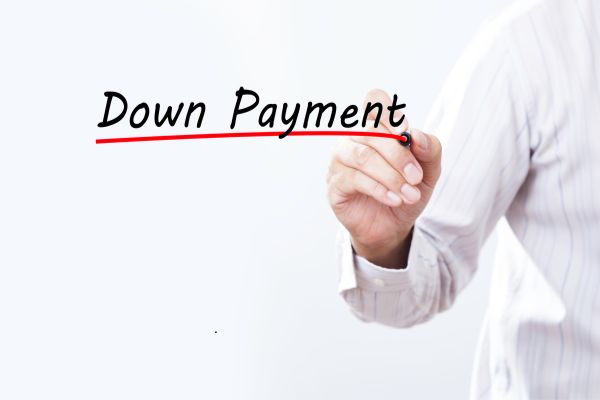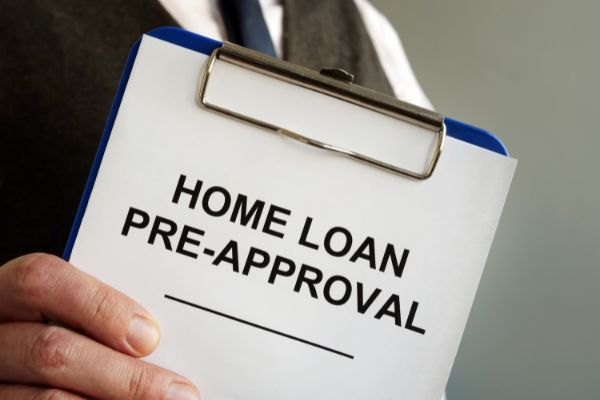Home sellers often evaluate down payments when reviewing purchase offers. Your down payment size influences available loan options and interest rates. It also determines your monthly mortgage payments and closing costs. Additionally, it affects how much cash you’ll need upfront. Sellers have varying opinions about down payment amounts. Some sellers don’t consider down payment size at all. Others choose offers specifically because of larger down payments.
Understanding seller perspectives gives home buyers a competitive advantage. This knowledge helps you decide your optimal down payment amount. Larger down payments demonstrate serious buying intent to sellers. A substantial earnest money deposit shows your commitment level. Sellers often view bigger down payments as reduced transaction risk. This financial commitment can make your offer more attractive. Strong financial positioning helps you stand out among multiple offers.
Your down payment size indicates deal completion likelihood to sellers. Larger down payments suggest smoother mortgage approval processes. Sellers associate bigger down payments with faster closing timelines.
Disclaimer: This article provides general information only and is not legal, financial, or real estate advice. Consult qualified professionals before making property decisions. Individual circumstances, mortgage terms, and tax implications vary. We make no guarantees about price accuracy or results. Your situation may differ from examples presented.

Understanding Common Down Payment Amounts
Many people believe 20% down payments are standard requirements. Conventional loans typically expect this 20% down payment amount. Paying less than 20% means adding private mortgage insurance costs. This insurance protects lenders when borrowers make smaller down payments.
Government Loan Programs Offer Lower Requirements
FHA loans allow qualified first-time buyers just 3.5% down payments. These government-backed loans make homeownership more accessible for many buyers. VA loans provide zero down payment options for eligible veterans. Military members and their spouses can access these special benefits. USDA loans also offer no down payment for rural properties. These programs help specific buyer groups enter the housing market.
What Sellers Actually Care About
Sellers focus more on your actual down payment than minimum requirements. They want to see strong financial commitment to the purchase. Your willingness to invest matters more than loan program rules. A larger down payment shows sellers you’re financially prepared. This demonstration of readiness can strengthen your overall offer position.
Real Down Payment Statistics
First-time buyers typically put down 6-7% since 2018 data shows. This percentage has remained fairly consistent across recent home purchases. Repeat buyers average 17% down payments in current markets. Their higher down payments reflect accumulated equity from previous homes. These statistics help buyers understand market standards, market value, and competition levels. Knowing these averages helps position your offer more strategically.

How Down Payments Influence Seller Decisions
Down payment amounts communicate important information about potential home sales. Sellers interpret these amounts as indicators of deal success. Larger down payments suggest smoother transactions and faster closings. This financial signal helps sellers evaluate competing offers more effectively.
Common Seller Misconceptions About Down Payments
Some sellers lack knowledge about modern low-down-payment loan options, which can stand in the way of successful home selling. They may unfairly judge buyers making smaller down payments. These sellers question buyers’ financial stability and loan approval chances. Old-fashioned thinking associates small down payments with risky buyers. This outdated perspective can disadvantage qualified buyers with legitimate financing.
Sellers’ Financial Concerns During Negotiations
Sellers worry larger down payments mean fewer inspection-related complications. They fear buyers with small down payments lack repair funds. This concern stems from assumptions about buyers’ cash reserves. Sellers believe low-down-payment buyers might request extensive repair credits. These assumptions influence how sellers view and prioritize offers. Buyers should understand these seller concerns when structuring offers.
Down Payments as Competitive Advantages
Multiple similar offers on home listings create challenging decisions for sellers. Larger down payments often become the deciding factor between offers. Sellers perceive higher down payments as safer transaction choices. This perception gives well-funded buyers significant negotiating advantages. Competing buyers should consider down payment size strategically. Understanding this dynamic helps buyers position offers more effectively.

Making Your Offer Stronger With Less Money Down
Small down payments don’t automatically disqualify your home offer. Several strategies can strengthen your position without increasing cash requirements. These methods show sellers your financial readiness and commitment level. Smart buyers use these tactics to compete against larger down payments.
Secure Mortgage Preapproval First
Getting preapproved demonstrates your financing readiness to sellers. Lenders review your credit history and financial documents thoroughly. This review process results in a preapproval letter. The letter confirms your approved loan amount to sellers. Preapproval shows sellers you’re a qualified, serious buyer. This documentation reduces seller concerns about loan denials.
Boost Your Earnest Money Amount
Earnest money deposits show your genuine interest in purchasing. These good faith deposits demonstrate buyer commitment to sellers. Larger earnest money amounts increase seller confidence significantly. This strategy costs less than increasing your down payment. Sellers view substantial earnest deposits as reduced transaction risk. Consider this approach when competing against multiple offers.
Improve Your Credit Score
Strong credit scores appeal to sellers evaluating multiple offers. Higher scores suggest smoother loan approval processes ahead. Sellers believe good credit means fewer financing complications. Improving your score takes time but costs nothing. This enhancement makes your offer more attractive overall. Credit improvements benefit both current and future purchases.
Market Conditions Affect Down Payment Importance
Competitive markets make down payments more significant to sellers. Multiple offers force sellers to compare buyer qualifications carefully. Strong seller’s markets give larger down payments extra weight. However, sellers prioritize offer price and closing dates first. Buyer’s markets reduce the importance of down payment size. Your agent can explain current market dynamics affecting negotiations.
Conclusion
Understanding down payment dynamics empowers buyers in today’s real estate market. While larger down payments attract sellers who are selling a house, creative strategies level the playing field. Mortgage preapproval, increased earnest money, and strong credit scores demonstrate financial readiness. These alternatives cost less than bigger down payments but boost offer strength. Market conditions ultimately determine how much down payments matter to sellers. Work with experienced real estate professionals who understand local market dynamics. They’ll help you make competitive offers regardless of your down payment. Sellers consider more than just down payment size, so show you’re a qualified and committed buyer. Understanding seller psychology and adapting your strategy leads to homebuying success.
Disclaimer: This article provides general information only and is not legal, financial, or real estate advice. Consult qualified professionals before making property decisions. Individual circumstances, mortgage terms, and tax implications vary. We make no guarantees about price accuracy or results. Your situation may differ from examples presented.
Frequently Asked Questions
What’s the minimum down payment needed to buy a home?
Down payment requirements vary significantly by loan type. Conventional loans typically require 3-5% down for qualified buyers. FHA loans allow 3.5% down payments for first-time homebuyers. VA and USDA loans offer zero down payment options. However, putting down less than 20% requires private mortgage insurance. Your credit score affects minimum requirements too.
Do sellers always prefer the highest down payment offer?
Sellers don’t automatically choose offers with the largest down payments. They typically prioritize the highest purchase price offer first. Closing timeline preferences also heavily influence seller decisions. Down payments become tiebreakers when comparing similar competing offers. Cash offers often win regardless of other buyers’ down payments.
How can I compete if I have a small down payment?
Several strategies help buyers with smaller down payments compete effectively. Get fully preapproved before making any offers on homes. Increase your earnest money deposit to show serious intent. Offer flexible closing dates that accommodate seller needs. Consider waiving certain contingencies if your agent recommends it. These tactics demonstrate financial stability despite smaller down payments.
What down payment myths do sellers believe?
Many sellers incorrectly assume small down payments indicate financial weakness. They believe low down payment buyers can’t afford repairs. Some think government-backed loans take longer to close. Sellers may not understand modern loan programs allowing minimal down payments. These misconceptions unfairly disadvantage qualified buyers with legitimate financing.
When do down payments matter most in negotiations?
Down payments carry the most weight in competitive seller’s markets. Multiple offer situations make down payments important differentiating factors. Hot real estate markets see sellers scrutinizing every offer detail. Down payments matter less when inventory is high. Market conditions ultimately determine down payment importance in negotiations.








